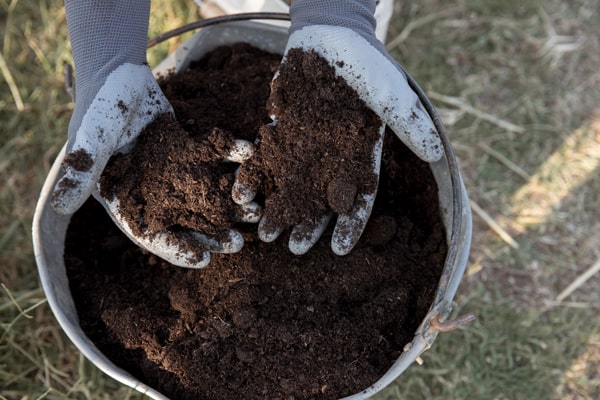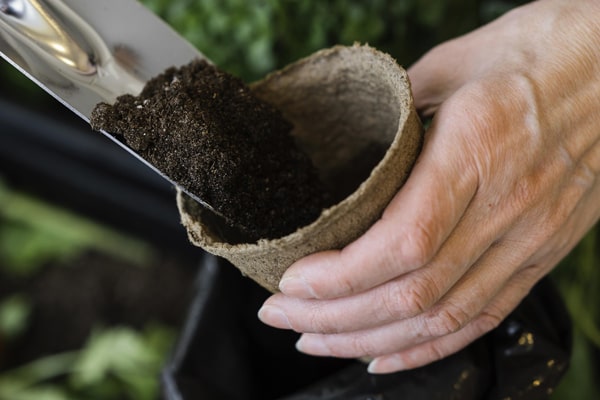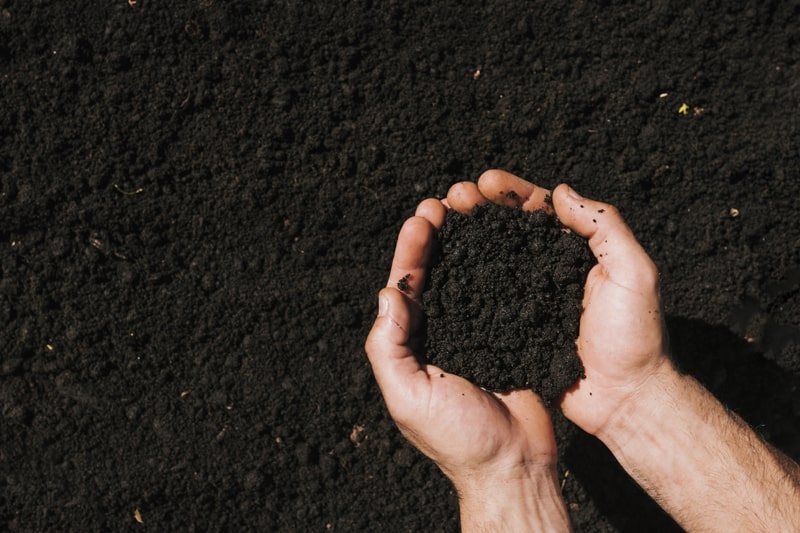How essential is a soil conditioner in your garden? Not all garden soils can support plant growth. You must amend the soil to ensure high yields at the end of every growing season. But what soil amendment should you use? How do you apply the soil conditioner properly? That's what this guide is all about.
Read: Everything You Need To Know About Humic Acid For Plants
Continue reading below to learn more about soil conditioners and how to use these products properly.
Contents []
What is a Soil Conditioner?
A soil conditioner is a product or substance added to soil to improve its physical qualities, fertility, and, sometimes, mechanics. It is generally considered a subset of soil amendments or soil improvement techniques.
Soil conditioners enhance poor soils or repair soils damaged due to improper soil management practices. They are employed to make poor soils more usable and maintain soils in optimal condition. By adding soil conditioners, the soil's overall structure, drainage, water retention, and nutrient content can be improved.
Various types of soil conditioners are available, including organic and artificial options. Organic soil conditioners, such as manure, compost, peat moss, leaf mold, sawdust, straw, and others, can improve soil structure, enhance drainage and water retention, supply nutrients, and provide food for beneficial microorganisms. However, some organic soil conditioners may be high in nitrogen or deplete nitrogen from the soil.
Soil conditioner is a product or substance added to soil to enhance fertility, physical properties, and overall quality. It can be organic or non-organic and is used to improve soil structure, drainage, water retention, and nutrient content, as well as support the growth of beneficial microorganisms.
Can You Use Humic Acids as a Soil Conditioner?

Yes, humic acids can be used as a soil conditioner. Humic acid is a component of humic content or humus, which is present in garden soil. It is often grouped with fulvic acid and humin. These substances work together to improve the quality of the soil.
Humic acid can be applied in granular form as a soil amendment during planting or transplanting, or it can be added in liquid form to watering cans. It is easy to apply and can be used throughout the growing season. It can be used on its own as a soil conditioner or in combination with other soil amendment products like fertilizers to boost soil health and increase crop yields.
When using humic acid as a soil conditioner, it is vital to consider the size of the area you cover. Typically, half a kilogram of powdered humic acid per acre is mixed with water for spraying on the soil. The effectiveness of humic acid as a soil conditioner can be monitored by observing the health of plants and making necessary adjustments based on the results.
Humic acids can be used as soil conditioners to improve soil quality. They can be applied in granular or liquid form and used alone or in conjunction with other soil amendment products. Humic acid enhances soil health and can benefit plant growth and crop yield.
10 Tips for Using Humic Acids Soil Conditioner in the Garden
Thinking of using humic acids to amend your garden soil? Here are some general guidelines and information on using humic acids as a soil conditioner:

Application methods: Humic acid can be applied in various ways, including as a soil amendment during planting or transplanting, as a foliar spray, or as a seed coat. Different application methods may have specific instructions and recommended dilutions.
Dilution ratio: When using humic acid as a foliar spray, it is suggested to dilute approximately a kilogram of humic acid with every 200 liters of water per hectare. Dilution ratios may vary depending on the specific product and the desired application.
Soil amendment: Humic acid can be applied as a granular soil amendment during planting or transplanting. It can also be added in liquid form to a watering can and applied directly to the soil. These methods allow for easy incorporation into the ground.
Coverage area: The coverage area of humic acid can vary depending on the concentration and form of the product used. For example, a 5-pound box of granular humic acid can cover approximately 500 square feet of garden space. It's essential to follow the product instructions for specific coverage recommendations.
Complementary use: Humic acid can be used in conjunction with other organic fertilizers to compensate for the minerals not supplied by compost [2]. Consider using other organic fertilizers along with humic acid to provide a balanced nutrient profile for your plants.
Monitor plant health: When introducing a new product like humic acid to your garden, closely observe the health of your plants. Take notes on any changes or improvements. This will help you determine if the humic acid is working effectively for your specific garden conditions.
Consider product quality: When using humic acids, it is crucial to choose a reliable product. Look for reputable brands or consult with gardening experts to ensure you are using high-quality humic acid products for optimal results.

Soil testing: Before using humic acids or any soil conditioner, consider conducting a soil test to determine your soil's nutrient content and pH levels. This information can guide you in choosing the appropriate dosage and application of humic acids to meet the specific needs of your soil.
Follow instructions: Always follow the instructions provided by the manufacturer of the humic acid product. The instructions may vary based on the product's specific brand, concentration, and intended use.
Track results: Keep a record of your application methods, dosages, and observations of plant growth and health. This will allow you to assess the effectiveness of humic acids over time and make any necessary adjustments to optimize their use in your garden.
ECOgardener Humic Acid For Your Garden Soil
While these tips provide general guidance on using humic acids as a soil conditioner in the garden, it's essential to refer to specific product instructions and consult with gardening experts for more detailed and tailored recommendations.
Incorporating ECOgardener humic acid soil conditioner into your gardening routine can significantly enhance the health and productivity of your soil, leading to successful and sustainable plant growth.
With its concentrated, water-soluble powdered formula derived from leonardite, this organic soil amendment is suitable for all soil types. Don't miss out on the opportunity to optimize your garden's nutrient content and ensure the success of your next growing cycle.
Try ECOgardener humic acid soil conditioner today and experience the benefits of healthier soil and thriving plants.



